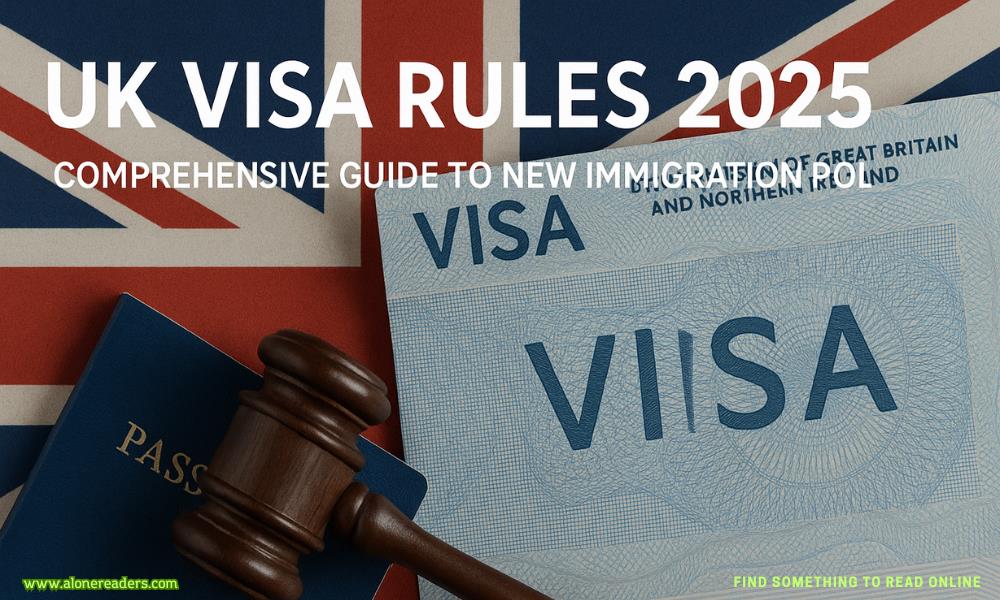
The United Kingdom’s immigration system has undergone a substantial overhaul in 2025, aligning with a broader political and economic strategy focused on reducing net migration, boosting high-skilled employment, and tightening border control. These changes are neither cosmetic nor procedural — they significantly reshape the pathways available for work, study, family reunion, and permanent settlement.
This in-depth guide outlines the most critical updates across all major visa categories in 2025, highlighting policy shifts, new requirements, and what applicants and sponsors must do to adapt.
New Minimum Salary Thresholds
The most impactful change to the Skilled Worker visa route in 2025 is the increase in the salary threshold. Employers sponsoring overseas workers must now offer a minimum annual salary of £38,700, a sharp increase from the previous threshold of around £26,200. This new figure applies broadly, with few exceptions.
Health and care workers, as well as those on shortage occupation lists, still benefit from some discounted thresholds, but even these have risen. For example, care workers now face a minimum threshold of £29,000, up from £20,960.
Elimination of Shortage Occupation Discounts
The so-called "Shortage Occupation List" has been heavily revised. Many of the previously included occupations — such as chefs, bricklayers, and care assistants — have either been removed or reclassified. The 20% salary discount once offered to shortage occupation roles has been entirely abolished, meaning all roles must now meet the full threshold to qualify.
Tightening of Employer Sponsorship Rules
Employers must now pass stricter compliance checks before receiving or renewing their sponsor licenses. The Home Office now monitors sponsored workers more aggressively, requiring frequent reporting of absences, changes in duties, or termination of contracts. Employers failing to comply risk losing their license and facing financial penalties.
Additionally, employers are prohibited from recovering sponsorship costs (like license fees or Immigration Skills Charges) from employees through payroll deductions or repayment agreements.
Graduate Route Shortened
The post-study work visa, known as the Graduate Route, has been reduced from two years to just 18 months. This reduction is intended to discourage international graduates from remaining in the UK without transitioning into skilled employment.
Stricter University Sponsor Rules
Educational institutions face tighter monitoring, with increased Home Office audits and data-sharing requirements. Universities that fail to maintain high visa compliance standards — including ensuring that enrolled students attend and progress academically — risk being removed from the sponsorship register.
Dependants Ban Expanded
International students can no longer bring dependants unless enrolled in research-based postgraduate programs (e.g., PhDs). This change has closed the door to family migration via the student route, which previously accounted for a significant portion of dependant visa applications.
Increased Income Requirement
For British citizens and settled individuals sponsoring a foreign spouse or partner, the minimum income threshold has increased to £29,000, rising further in late 2025 to £38,700. This is now aligned with the Skilled Worker route, eliminating the income flexibility that once applied to family reunification.
Savings Substitution Rules Narrowed
Applicants who do not meet the income threshold can no longer fully rely on cash savings unless those savings exceed £88,500, up from £62,500. The calculation mechanism has also been altered, making it harder to compensate for low income with personal assets.
New Language and Integration Expectations
In addition to existing English language requirements, applicants for spouse and partner visas must now complete a "civic integration module", proving basic understanding of UK values, legal systems, and responsibilities of permanent residents. This is separate from the Life in the UK Test and is administered during or before visa extensions.
Longer Residence Requirement
The pathway to Indefinite Leave to Remain (ILR) has been extended in most categories. Applicants must now reside in the UK for ten continuous years, up from five, to qualify — unless they are on very limited routes such as Global Talent or Innovator Founder visas.
Points-Based Settlement Criteria
A new "earned settlement" model has been introduced. Applicants accumulate points based on factors such as economic contribution, community service, advanced English language ability, and absence of public benefit reliance. A minimum of 100 points is required for ILR, though high salaries, homeownership, and voluntary work can accelerate point accumulation.
No Automatic Citizenship from ILR
Acquiring ILR no longer automatically leads to British citizenship eligibility after one year. From 2025, applicants must demonstrate active contribution to the UK, such as continuous full-time employment, tax compliance, and civic engagement, before naturalization is approved.
Mandatory Electronic Travel Authorisation (ETA)
All non-visa nationals must now obtain an ETA before boarding transportation to the UK. This includes citizens of countries that previously did not require any form of pre-travel clearance. The ETA is valid for two years but must be applied for online with biometric and travel history information.
Visitor Visa Rule Clarifications
There’s now greater enforcement of restrictions for business visitors. Visitors can no longer engage in "shadow employment" such as hands-on training, internships, or direct client work without the appropriate work visa. Business activities must be strictly observational or representational, with consequences for both individuals and sponsoring companies if rules are violated.
Immigration Health Surcharge Increase
The Immigration Health Surcharge (IHS) has risen to £1,035 per year for most visa categories. Dependants pay the same amount. This significantly increases the upfront cost of multi-year visas.
No Right to Appeal for Certain Rejections
Increased reliance on automated decision-making has removed appeal rights for some temporary visa refusals. Applicants must now reapply rather than challenge administrative errors, unless human rights grounds are involved.
The UK's 2025 visa reforms are wide-reaching and designed to dramatically reduce low-skilled migration, tighten family migration, and reward high-value applicants. While the new system offers clearer expectations, it also introduces higher financial, procedural, and documentation burdens.
Prospective applicants should:
Navigating the UK immigration system in 2025 demands both strategic planning and a thorough understanding of the new legal landscape. Staying informed and acting proactively will be the key to success.